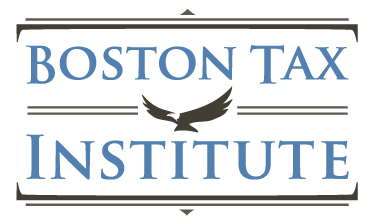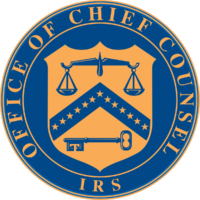Mandatory state paid medical and family leave programs (PMFL) have been generating federal tax confusion. In January of 2024, nine governors signed a letter asking the IRS for clarification and guidance. The IRS came through recently with Revenue Ruling 2025-4. There has been enough other coverage of the ruling to discourage me from weighing in, but there is something important that I have not seen in the other coverage. I believe that there is a refund opportunity, which may require prompt action. We’ll get to that, but first I will summarize the key points in the ruling.
Background
Thirteen states and the District of Columbia have mandatory PFML programs. The details vary. The ruling refers to “State X” where the program provides wage replacement to workers who need to take time off due to “their own non-occupational injuries, illnesses, or medical conditions, or to care for a family member due to the family member’s serious health condition or other prescribed circumstance”. In State X all in-state employers and employees are required to make contributions to the PFML Fund.
The rate in State X is 1%. The employer can withhold as much as 0.6% from the employee’s wages and has to kick in 0.4% from its own funds. The employer is permitted to withhold a lesser amount or nothing at all, which results in the employer paying more out of its funds. That employer pick-up is not included in wages for purposes of determining the required contribution. Another possible alternative is for the employer to establish a private insurance plan that provides the same benefits at no greater cost to the employee.
Benefits under the plan can be 80% of wages for 12 weeks if one of the conditions are met.
The Tax Issues
I did not find it at all surprising that the employer gets to deduct the employer contribution against ordinary income as an excise tax. The amount of the required employer contribution is not included in the employees wages. The employee contribution withheld does not reduce wage income. The employee can deduct the amount withheld as state income tax, if they itemize and subject to the limit on that deduction.
The employer pick-up of employee contributions is kind of convoluted. It is deductible to employer, but they are required to include it in the employee’s gross income as wages. The employee can deduct the amount as an itemized deduction subject to the limitation on state and local taxes. This rule is going to be enforced prospectively to give people time to adjust their payroll systems.
Family leave benefits are taxable to the employee, but are not treated as wages, so there is no FICA or Medicare Tax.
Medical leave benefits are taxable as wages to the extent that they are attributable to employer contribution, unless they are reimbursing out of pocket medical expenses, which I suspect is uncommon. They are considered wages.
Finally we come to some good news. Medical leave benefits that are attributable to employee contributions and employer pick-up are excluded from employee’s Federal gross income. That is where it appears that there should be a refund opportunity.
Who Should Be Seeking A Refund?
If you collected from a state PFLM program for medical leave due to your own health issues, not a family member’s, and reported the full amount as taxable income, you should probably seek a refund if the return is still open. The time for claiming a refund is the later of three years from when the return is filed or two years from the date you paid the tax. A return filed before the due date is considered to have been filed on the due date. Remember you will be backing out a portion of the amount of income you picked up. If you happen to live in State X and there was no pick-up, it should be 60%.
I am not going to get into all the nuances of refund claim due dates here. For simplicity I am going to assume you are somebody who files timely without extending every year and that you pay somebody to do your return. If in 2021 you received medical leave payments from a state program and reported the amount as income you should contact your preparer now to discuss amending your 2021 return. Call them now, because in a few weeks they will not want to be dealing with this at all. With good software, producing an amended return to claim a refund is not that hard provided you are doing it on the same platform where the original return was produced.
If you collected medical leave in 2022 or 2023, you can wait till May or June to bother your tax preparer about doing a refund claim. Don’t put it off any further than that though as there is no excuse for even getting close to the deadline.
What About The Effective Date?
The effective date of the ruling is January 1, 2025 with a transition period for certain provisions. If you are running a payroll company or responsible for information reporting for one of the state programs that is really important. But does that effective date mean you can’t ask for a refund for 2021 if you reported as taxable income something the ruling says should be excluded? I think not. This is not about a change in the law. Back in 2022 when you filed that return everybody was confused about what the law meant. Nine governors asked the IRS for clarification a year ago and now those smart people at the Chief Counsel’s office have figured it out. Who are we to argue?
Acknowledgement
I’d like to thank Jeff Kristoff CPA, Director of Tax at Rosen & Associates LLP for pointing this out to me.
Originally published on Forbes.com.
For great value continuing professional education. I recommend the Boston Tax Institute

You can register on-line or reach them by phone (561) 268-2269 or email vc@bostontaxinstitute.com. Mention Your Tax Matters Partner if you contact them.
Originally published on Forbes.com.
For articles oriented toward tax professionals check out Think Outside The Tax Box.
































































































